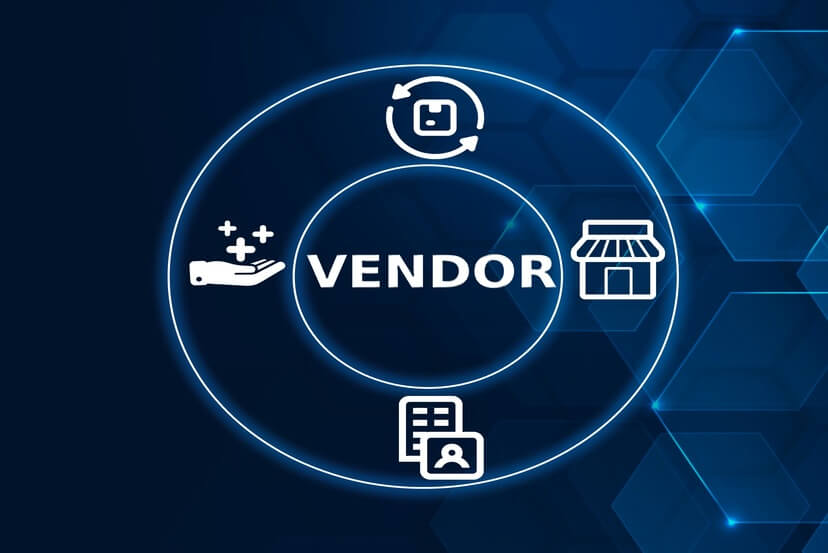Mastering Vendor Relationships: How Intelligent Orchestration Helps CPOs Enhance Collaboration

In today’s dynamic procurement landscape, effective vendor relationship management is paramount for Chief Procurement Officers (CPOs) aiming to drive efficiency, innovation, and resilience.
As supply chains become more complex, traditional approaches to vendor management often fall short, leading to communication gaps, compliance issues, and missed opportunities for collaboration.
Enter intelligent orchestration—a transformative approach that leverages advanced technologies to streamline procurement processes, enhance supplier collaboration, and empower CPOs to lead with agility and foresight.
The Strategic Importance of Vendor Relationships
Strong vendor relationships are the bedrock of successful procurement strategies. They enable organizations to:
- Ensure supply chain reliability: Reliable vendors contribute to consistent product availability and service delivery.
- Optimize costs: Collaborative partnerships often lead to better pricing, favorable terms, and shared cost-saving initiatives.
- Drive innovation: Engaged suppliers are more likely to contribute innovative ideas and solutions.
- Enhance quality: Long-term relationships foster a mutual commitment to maintaining high standards.
- Build resilience: Vendors with shared strategic goals help navigate disruptions and market volatility more effectively.
However, managing these relationships effectively requires more than periodic check-ins and contract renewals.
It demands a proactive, integrated approach that aligns vendor capabilities with organizational goals—making vendor management a strategic pillar of procurement leadership.
Challenges in Traditional Vendor Management
Despite their importance, vendor relationships often face several challenges:
- Inefficient communication: Disparate systems and lack of centralized information can lead to misunderstandings and delays.
- Limited visibility: Without real-time data, tracking vendor performance and compliance becomes difficult.
- Resource-intensive processes: Manual tasks consume valuable time and are prone to errors.
- Compliance risks: Inadequate oversight can result in non-compliance with contracts and regulations.
- Lack of scalability: Traditional systems often struggle to scale with growing supplier networks and global operations.
These issues not only strain vendor relationships but also hinder the organization’s ability to respond swiftly to market changes—impacting operational continuity and strategic agility.
Embracing Intelligent Orchestration
Intelligent orchestration refers to the integration of advanced technologies—such as artificial intelligence (AI), machine learning (ML), and automation—into procurement processes to enhance decision-making and collaboration.
Key components include:
- Centralized data management: Consolidating vendor information into a single platform for easy access and analysis.
- Real-time analytics: Monitoring vendor performance and identifying trends to inform strategic decisions.
- Automated workflows: Streamlining routine tasks like order processing and compliance checks to reduce errors and free up resources.
- Collaborative platforms: Facilitating seamless communication between internal teams and vendors to foster transparency and trust.
- Predictive insights: Leveraging AI to forecast supply disruptions, demand changes, and vendor risk proactively.
By adopting intelligent orchestration, CPOs can transition from reactive management to proactive leadership, ensuring that vendor relationships are not just maintained but continuously optimized for long-term value.
Benefits of Intelligent Orchestration in Vendor Management
Implementing intelligent orchestration offers numerous advantages:
- Enhanced collaboration: Real-time communication tools and shared platforms promote transparency and joint problem-solving.
- Improved compliance: Automated monitoring ensures adherence to contractual obligations and regulatory requirements.
- Increased efficiency: Automation reduces manual workload, allowing teams to focus on strategic initiatives.
- Data-driven insights: Advanced analytics provide a deeper understanding of vendor performance and areas for improvement.
- Risk mitigation: Early detection of potential issues enables prompt corrective actions, minimizing disruptions.
- Scalable operations: A unified orchestration framework supports expansion into new markets and supplier ecosystems with minimal friction.
- Faster decision-making: Dashboards and AI insights empower procurement leaders to act quickly and confidently.
These benefits collectively contribute to a more resilient and responsive procurement function, reinforcing the importance of vendor relationships as a strategic asset.
Implementing Intelligent Orchestration: Best Practices for CPOs
To successfully integrate intelligent orchestration into vendor management, CPOs should consider the following steps:
- Assess current processes: Identify existing gaps and inefficiencies in vendor management workflows.
- Define clear objectives: Establish specific goals for what the organization aims to achieve through intelligent orchestration.
- Select the right technology: Choose platforms that offer scalability, user-friendliness, and integration capabilities with existing systems.
- Engage stakeholders: Involve procurement teams, IT, and key vendors in the planning and implementation process to ensure buy-in and smooth adoption.
- Train internal teams: Invest in skill development to ensure teams can leverage orchestration tools effectively.
- Monitor and adjust: Continuously evaluate the impact of intelligent orchestration and make necessary adjustments to optimize outcomes.
By following these vendor management best practices, CPOs can ensure a seamless transition to a more intelligent and collaborative procurement ecosystem.
Conclusion
In an era where agility, transparency, and collaboration are critical, intelligent orchestration emerges as a powerful tool for CPOs to elevate vendor relationships.
By leveraging technology to streamline processes, improve communication, and derive actionable insights, organizations can build stronger partnerships that drive mutual growth and success.
Mail your inquiries to emea@moglixbusiness.com or get in touch with our team here: https://business.moglix.ae/contact-us/

